Trump moves against social media companies
 —Photo courtesy: BBC News
—Photo courtesy: BBC NewsPresident Donald Trump signed an executive order on Thursday that could scrap or weaken the law protecting social media companies after Twitter flagged one of his tweets warning the readers to fact-check the claims.
The order calls on government regulators to evaluate if online platforms should be eligible for liability protection for content posted by their millions of users.
If enforced, the action would upend decades of precedent and treat internet platforms as "publishers" potentially liable for user-generated content.
Trump told reporters at the White House he acted because big tech firms "have had unchecked power to censor, restrict, edit, shape, hide, alter any form of communication between private citizens or large public audiences."
"We can’t let this continue to happen," Trump said.
The move comes a day after an angry tirade from the US leader against Twitter after the platform for the first time labelled two of his tweets, on the increasingly contentious topic of mail-in voting, with fact-check notices, calling them misleading.
"In those moments, Twitter ceases to be a neutral public platform and they become an editor with a viewpoint," Trump said.
"And I think we can say that about others also, whether you’re looking at Google, whether you’re looking at Facebook, perhaps others."
- ‘President’s speech police’ -
Critics said however Trump has no authority to regulate private internet operators or change the law known as Section 230 which backers say has allowed online platforms like Facebook and Twitter to flourish.
The American Civil Liberties Union called Trump’s order "a blatant and unconstitutional threat to punish social media companies that displease the president."
Eric Goldman, director of the High-Tech Law Institute at Santa Clara University, said the order was "more about political theater than about changing the law."
The order "is not legally supportable -- it flies in the face of more than 900 court decisions," Goldman said.
The White House seeks to sidestep the provisions giving internet firms immunity by treating them as publishers operating in part of a "public square."
"Twitter, Facebook, Instagram, and YouTube wield immense, if not unprecedented, power to shape the interpretation of public events; to censor, delete, or disappear information; and to control what people see or do not see," the executive order said.
While the Trump order would not prevent platforms from moderating content, it could open them up to a flood of lawsuits from anyone who claims to be harmed by content posted online.
Critics said the action represents a dangerous effort by the government to regulate online speech.
"Social media can be frustrating. But an Executive Order that would turn the FCC into the President’s speech police is not the answer," said Jessica Rosenworcel, a Democratic member of Federal Communications Commission, one of the agencies tasked with enforcing the executive order.
Matt Schruers, president of the Computer & Communications Industry Association, a trade group, warned that "retaliation against the private sector for fact-checking leadership is what we expect from foreign autocracies, not the United States."
- Wading into quagmire -
Internet firms have denied Trump’s claims of bias, and point to his massive social media following. But the president’s move plays into his narrative ahead of his difficult November reelection battle that liberal forces are trying to censor Republicans.
Senator Josh Hawley, a Republican and fierce critic of social media, said that if online firms "are going to editorialize and censor and act like traditional publishers, they should be treated like traditional publishers and stop receiving the special carve out from the federal government."
But Democratic Senator Ron Wyden, one of the authors of the 1996 law, called Trump’s order a "plainly illegal" political ploy.
"Trump is desperately trying to steal for himself the power of the courts and Congress to rewrite decades of settled law around Section 230. All for the ability to spread lies," Wyden said.
- Fact check fury -
A wider debate has long been underway on the power that social media companies wield and what responsibility they bear for posts that are misleading or hurtful.
Internet services like Twitter and Facebook have been struggling to root out misinformation, while at the same time keeping their platforms open to users.
The massive amount of unverified content in circulation has prompted a rise in fact-checking operations, including a vast Facebook effort in which AFP plays a role.
After long resisting calls to censure Trump over his frequent factually inaccurate posts, Twitter on Tuesday flagged the president for the first time for making false claims.
Trump had tweeted -- without any evidence -- that more mail-in voting would lead to what he called a "Rigged Election" this November.
Some analysts claimed the president’s arguments against Twitter had turned upside down the interpretation of the constitution’s First Amendment, designed to prevent the government from limiting free expression.
"The First Amendment applies to the government not to private actors like Twitter," wrote law professors Laurence Tribe of Harvard and Joshua Geltzer of Georgetown University in the Washington Post.
"Trump is wrong on the law, but this time he’s even more wrong than usual. There is someone violating the First Amendment on Twitter, but it’s not Twitter -- it’s Trump."
AFP








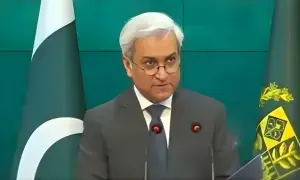

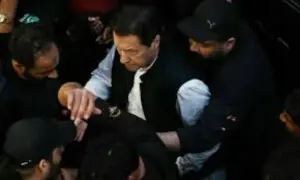
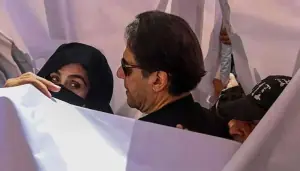



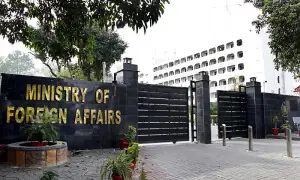
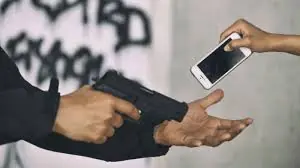


Comments are closed on this story.